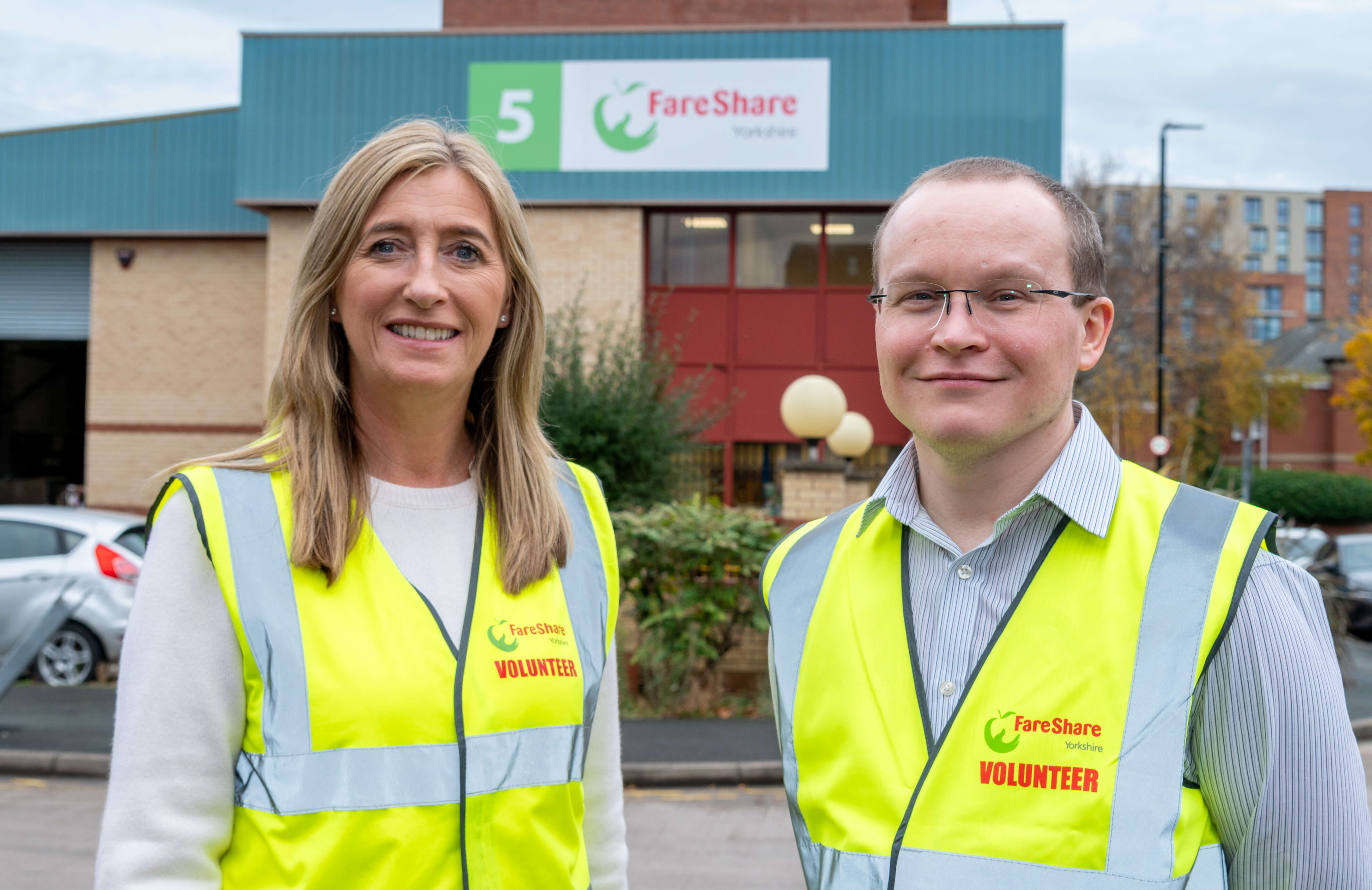Mind the wealth gap – Yorkshire Building Society research shows generation giving up on home-owning could miss out on millions
- Two-thirds (58%) of non-homeowners aged 35-54 could be giving up on great British love affair with homeownership
- Lifetime wealth gap for those forced to rent instead could be £2.6m
- Housing and house prices rank third on prospective buyers’ list of national priorities, behind the economy and health.
Stark new research from Yorkshire Building Society suggests that a fifth (21%) of UK 18-to-34-year-olds and three fifths (59%) of those aged 35 to 54 are unsure if they will ever own a home or are not planning to do so at all.
The mutual also asked would-be first-time buyers about the barriers preventing them from investing in their own four walls, and the things they cited included worries about the level of financial commitment a house represents, affordability and the high cost of living. In fact, 41% said that the cost of living is the key challenge preventing them from buying their first home and 43% have delayed purchasing due to high prices. Half (50%) said they feel so overwhelmed by the complexity of the current market, they’ve given up even looking for a property to buy.
Meanwhile, the Society’s own analysis suggests opting out of owning could result in renters being £2.6 million worse off over their lifetime – not to mention the impact on their ability to pass on wealth to future generations.
This is based on a comparison of renting versus buying over the 55-year period from 33 – the current average age when people buy their first home – to 88, the average lifespan of a person today (1).
Over this period of time, the borrower would pay £367k in mortgage payments, while the renter would pay £1.6m in rent. However, while the borrower would own a property worth £1.7 million after this time, the renter would have nothing to show for it (2). Even if they were to invest the equivalent of the first-time buyer’s 5% deposit of £10,000 over this time, their money would only be worth £155k (3). Not only that, but £960k of the renter’s £2.6m additional spend would result from continued rental payments over the 20 years from retiring at 68, while the buyer would have no accommodation costs to fork out other than occasional maintenance. Unlike the renter, they would also have the flexibility to release capital from their home to support their retirement lifestyle or pass on their accumulated wealth to their loved ones.
All of this is particularly telling given that the Society’s research, carried out by Opinium among 1,000 potential first-time buyers looking to purchase their own homes within the next three years, along with a separate, nationally representative sample of 2,000 people, showed that the key motivator for buying among 55% of people, was not wasting money on rent. And this sentiment is felt most among people in the 35-44 age bracket (64%) and those aged 45 to 54 (67%).
Meanwhile, survey respondents who are looking to buy also cited basic needs like freedom to live how they like (40%); wanting to start a family (34%) and providing them with security in retirement (33%) among their reasons – reiterating the important role homeownership plays in life planning.
And those who haven’t quite given up yet are pulling out all the stops to get themselves into a buy-ready position, with 69% saying they would consider extending their mortgage term to make it more affordable, and 83% saying they would look to try to pay off a lump sum to make their mortgage more affordable.
Not surprising, then, that 37% of prospective first-time buyers ranked housing and house prices as third on the list of national priorities, behind the economy (48%) and health and the NHS (46%), and ahead of immigration, crime, environment, terrorism and defence.
Dante John Baptiste, a 23-year-old from Essex, gave his view: “I’ve seen a lot of people older than me really struggle to get onto the property ladder and I think the general discourse from many is that my age group will never physically own anything.
“That said, my friends who want to own a home have started planning out how to make it happen from their first years at university, for example through lifetime ISAs, working multiple jobs while living at home or making plans to move to countries that have a more stable economy and housing market.
“Others, like me, find comfort in accepting that it’s unlikely they’ll be able to own in the UK, and so turn their attention to spending on life experiences – travelling, business opportunities etc, rather than the traditional life path of our parents.
“I think younger people start out by basing their ideas on what their parents and loved ones want for them. However, as they actually begin to navigate the property market, while balancing their living expenses, it becomes apparent that it’s not as simple as it once was.”
Ben Merritt, Yorkshire Building Society’s director of mortgages, said: “These latest research findings are perhaps our most stark yet, pointing to a potential loss of faith in the idea of homeownership.
“That – coupled with our lifetime analysis of what this means for anyone who has to settle for long-term renting – shows just how big an issue this is for the UK right now, which our respondents have seconded in the priority they have assigned to housing.”
He added: “This is why, as a leading mutual set up to help ordinary people own their own homes, we are doing everything we can to champion the right to homeownership. We launched our £5k Deposit Mortgage in March, which enables people to buy a house worth up to £500,000 with a deposit of just £5,000; and we are also preparing to raise this issue in government through a policy paper and Parliamentary event calling for a joined-up industry approach to fixing what is wrong with the housing market, involving lenders, the Government and other industry bodies.
“We believe homeownership is a basic right which gives people access to a range of other life essentials, and this is why we will continue doing our bit to push for it to remain available to as many people as possible.
“While it is obviously a worrying situation for first-time buyers, we want them to feel encouraged that there are solutions out there for them and if more industry players can galvanise behind this issue and give borrowers hope, they can see how compelling a prospect property still is as an asset.
“With a little help – homeownership really is still worth the effort. And with innovative products like our £5k Deposit Mortgage, they could turn just £5k into a nest egg worth £1.7m.”
Method used to calculate lifetime wealth gap
We applied the following assumptions to arrive at the lifetime cost comparison figures quoted:
- Using average first-time buyer age of 33 (Best first-time buyer mortgages | July 2024 | money.co.uk); average first-time buyer mortgage term of 30 years (Chapter 2: Housing costs and affordability - GOV.UK (www.gov.uk); expected retirement age for today’s first-time buyers of 68 and maximum life expectancy for someone aged 33 now as the basis for comparison
- Total cost of renting vs buying over 55 years, taking into account average monthly rental payment of £890 (the equivalent rental payment on a first-time property worth £200,000) with a 4% annual rental increase applied; based on average first-time buyer mortgage of £200,000 at an interest rate of 5% (monthly mortgage payment of £1,019.96 and assumed future house price growth of 4%. Average life expectancy for a female aged 33 now (Life expectancy calculator - Office for National Statistics (ons.gov.uk) – we have based our assumptions on female life expectancy for the purposes of this illustration because they typically live longest and will therefore own a home for the longest amount of time)
- Comparing how an investment equivalent to the first-time buyer’s 5% deposit of £10,000 would grow if the renter invested it in non-property assets over the 55 years, based on average growth of 5%.
Research details
The findings come from two online surveys conducted on the Society’s behalf by Opinium:
- A ‘First Time Buyer survey’ which consisted of 1,000 UK First Time Buyers (Looking to Purchase in the Next 3 Years). The survey was conducted between 18 July 2024 to 26 July 2024
- A ‘Nat Rep UK adults survey’ which consisted of 2,000 UK adults, nationally representative of the UK population. The survey was conducted between 19 July 2024 and 23 July 2024.



